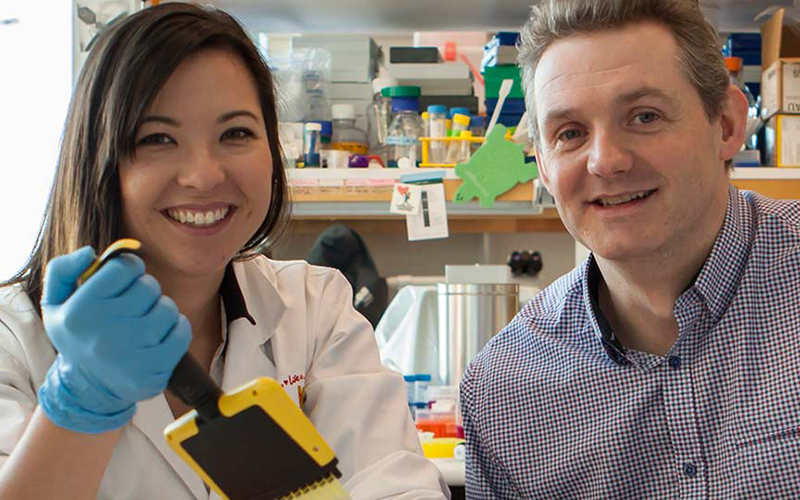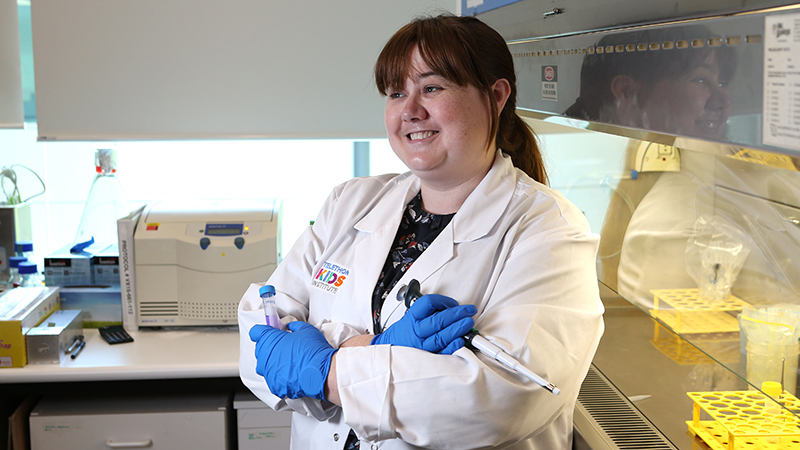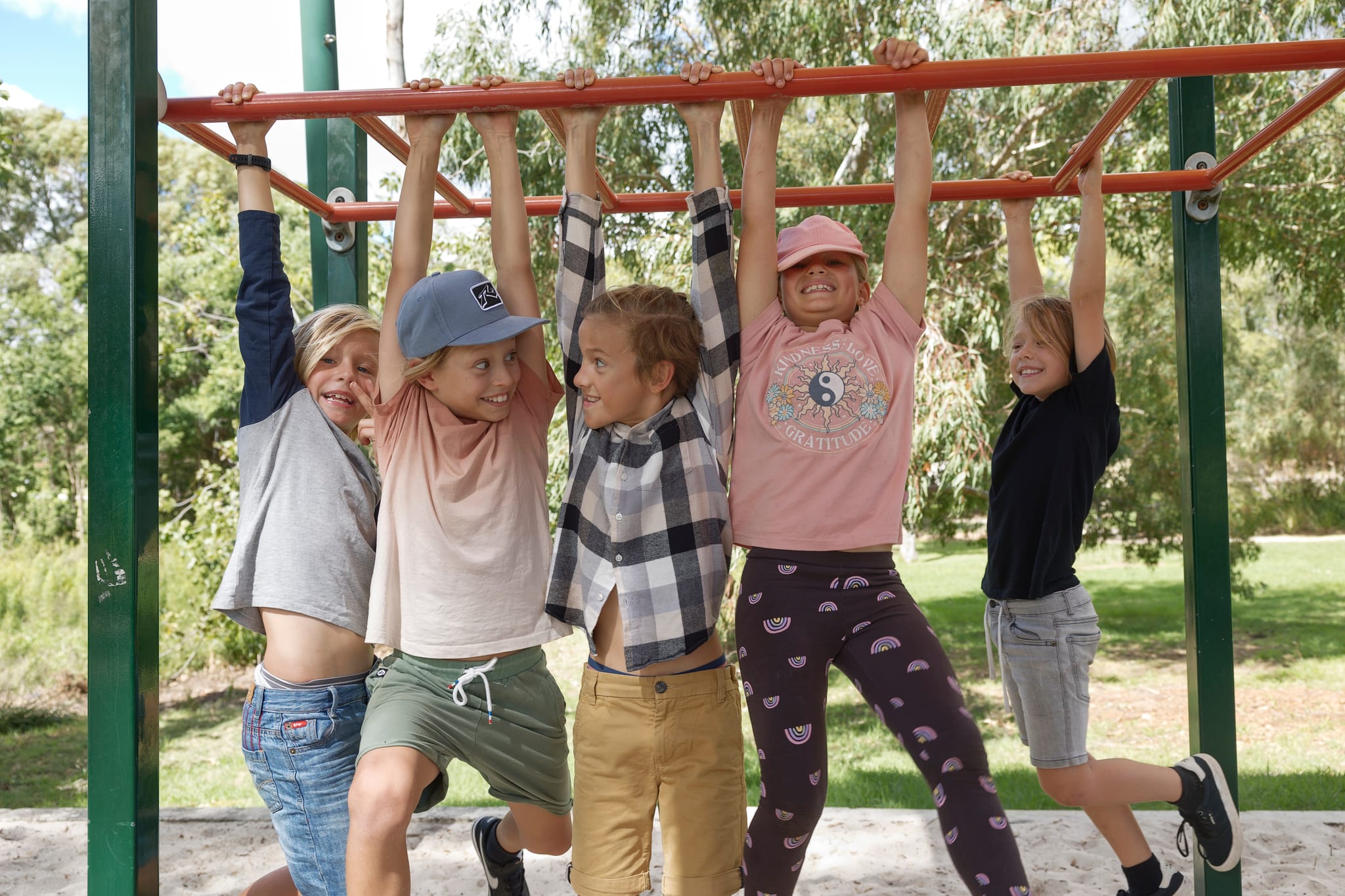Search

News & Events
Researchers narrow down field of new treatments for most common childhood brain cancerCancer researchers have narrowed-down the field of immunotherapy drugs which could be used to tackle a form of childhood brain cancer.

News & Events
Landmark research hopes to increase survival rates for aggressive childhood cancerA new combination of drugs could help to increase survival rates with fewer side effects for some children with one of the most aggressive forms of childhood brain cancer.

News & Events
“Natural killer” donor cells fighting kids leukaemiaNew research by The Kids shows donor immune cells are highly effective at boosting the body’s response against leukaemia.

News & Events
Funding boost for childhood cancer research projectsProjects to improve outcomes for leukaemia patients and reduce skin cancer rates in young Aboriginal people have received funding through Cancer Council WA.
Research
EphA3-targeted chimeric antigen receptor T cells are effective in glioma and generate curative memory T cell responsesHigh-grade gliomas including glioblastoma (GBM) and diffuse midline gliomas (DMG) represent the most lethal and aggressive brain cancers where current treatment modalities offer limited efficacy. Chimeric antigen receptor (CAR) T cell therapies have emerged as a promising strategy, boasting tumor-specific targeting and the unique ability to penetrate the blood-brain barrier.
Research
Efficacy of DYRK1A inhibitors in novel models of Down syndrome acute lymphoblastic leukemiaDespite significant advances, outcomes for children with Down syndrome (DS, trisomy 21) who develop acute lymphoblastic leukemia remain poor. Reports of large DS-ALL cohorts have shown that children with DS have inferior event-free survival and overall survival compared to children without DS.
Research
Towards precision cancer medicine for Aboriginal and Torres Strait Islander cancer health equityDelivering cancer control at scale for Aboriginal and Torres Strait Islander communities is a national priority that requires Aboriginal and Torres Strait Islander leadership and codesign, as well as significant involvement of the Aboriginal community-controlled health sector. The unique genomic variation observed among Aboriginal and Torres Strait Islander peoples may have implications for standard and precision medicine.
Research
Precision-guided treatment in high-risk pediatric cancersRecent research showed that precision medicine can identify new treatment strategies for patients with childhood cancers. However, it is unclear which patients will benefit most from precision-guided treatment.
Research
Management of patients with diffuse intrinsic pontine glioma in Australia and New Zealand: Australian and New Zealand Children's Haematology/Oncology Group position statementThe main mission of the Australian and New Zealand Children's Haematology and Oncology Group is to develop and facilitate local access to the world's leading evidence-based clinical trials for all paediatric cancers, including brain tumours, as soon as practically possible.
Research
Immune checkpoint therapy responders display early clonal expansion of tumor infiltrating lymphocytesImmune checkpoint therapy (ICT) causes durable tumour responses in a subgroup of patients, but it is not well known how T cell receptor beta (TCRβ) repertoire dynamics contribute to the therapeutic response.
